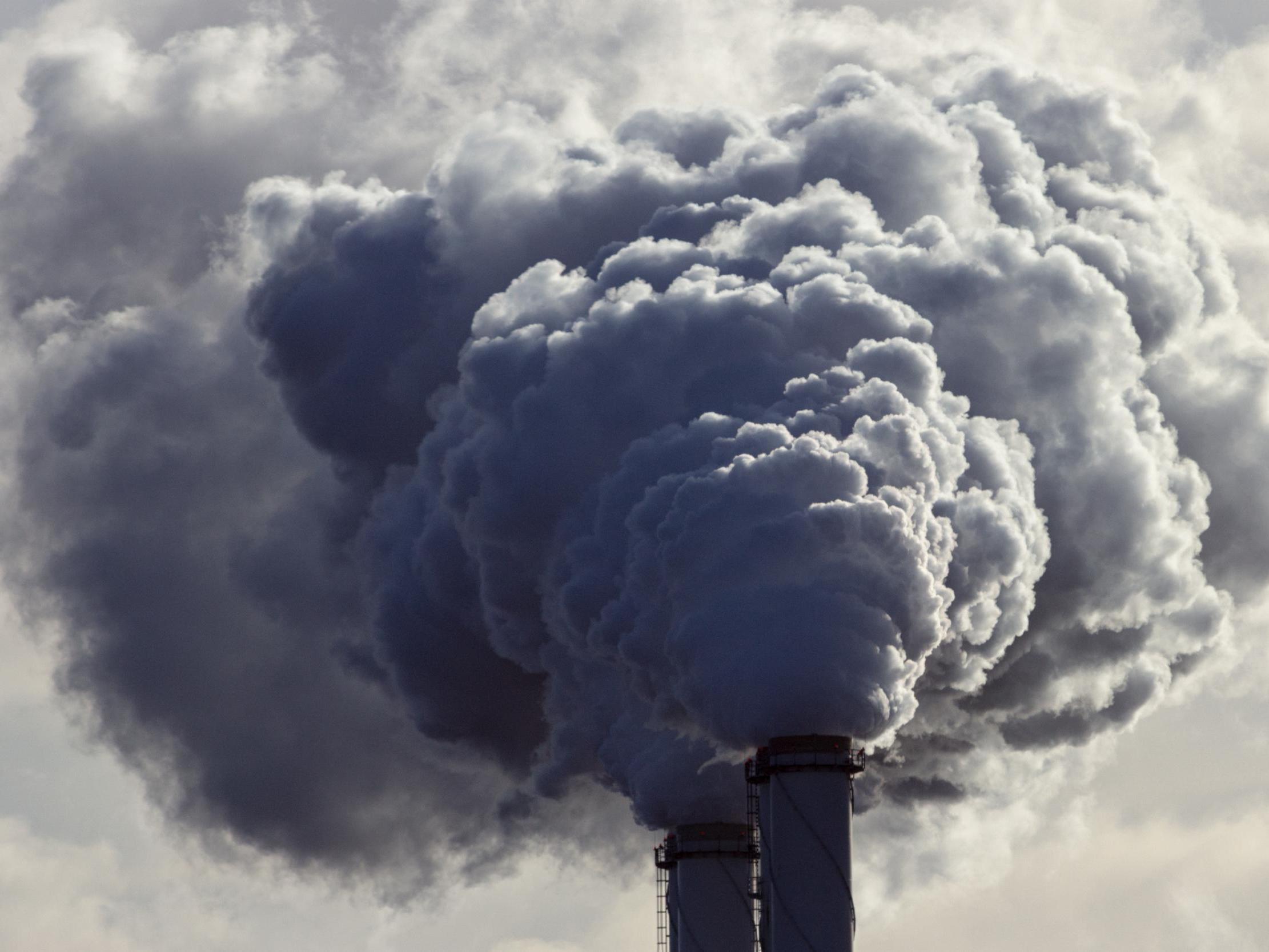UN warns of 'destructive and irreversible impacts' as greenhouse gases hit level not seen for millions of years
‘The urgency and extent of the actions needed to address climate change have not sunk in’

Your support helps us to tell the story
From reproductive rights to climate change to Big Tech, The Independent is on the ground when the story is developing. Whether it's investigating the financials of Elon Musk's pro-Trump PAC or producing our latest documentary, 'The A Word', which shines a light on the American women fighting for reproductive rights, we know how important it is to parse out the facts from the messaging.
At such a critical moment in US history, we need reporters on the ground. Your donation allows us to keep sending journalists to speak to both sides of the story.
The Independent is trusted by Americans across the entire political spectrum. And unlike many other quality news outlets, we choose not to lock Americans out of our reporting and analysis with paywalls. We believe quality journalism should be available to everyone, paid for by those who can afford it.
Your support makes all the difference.The greenhouse gases driving climate change have reached highs not seen in at least 3 million years, prompting UN scientists to warn the “window of opportunity” to tackle emissions is rapidly closing.
Carbon dioxide, nitrous oxide and methane are all still on the rise, the World Meteorological Organisation (WMO) has said, and there has been a resurgence in ozone-depleting CFCs.
“The last time the Earth experienced a comparable concentration of carbon dioxide was 3-5 million years ago, when the temperature was 2-3C warmer and sea level was 10-20 metres higher than now,” said WMO secretary general, Petteri Taalas.
In its annual bulletin on greenhouse gas levels, the WMO said there is no sign of a reversal in the trend in increasing emissions which are driving climate change, sea level rises, extreme weather and making oceans more acidic.
“The science is clear,” Mr Taalas said. “Without rapid cuts in carbon dioxide and other greenhouse gases, climate change will have increasingly destructive and irreversible impacts on life on Earth.
“The window of opportunity for action is almost closed.”
Average concentrations of carbon dioxide hit new highs of 405.5 parts per million (ppm) in 2017, up from 403.3 ppm in 2016 and 400.1 ppm in 2015 – 2.5 times the pre-industrial revolution concentration.
“CO2 remains in the atmosphere for hundreds of years and in the oceans for even longer. There is currently no magic wand to remove all the excess CO2 from the atmosphere,” said WMO deputy secretary-general Elena Manaenkova.
“Every fraction of a degree of global warming matters, and so does every part per million of greenhouse gases,” she said.
Levels of methane have soared to 3.5 times their pre-industrial levels, with emissions largely coming from cattle, rice paddy fields and oil and gas leaks.
Farming methods including use of fertilizers is largely behind the rise in nitrous oxide, which has doubled since the pre-industrial era.
The latest findings come after a report from the UN’s Intergovernmental Panel on Climate Change (IPCC) found net emissions of carbon dioxide must reach zero by around 2050 to keep temperature rises to 1.5C above pre-industrial levels and reduce the risks of climate change.
IPCC chairman Hoesung Lee said: “The new IPCC special report on global warming of 1.5C shows that deep and rapid reductions of emissions of carbon dioxide and other greenhouse gases will be needed in all sectors of society and the economy.
“The WMO greenhouse gas bulletin, showing a continuing rising trend in concentrations of greenhouse gases, underlines just how urgent these emissions reductions are.”
Professor Corinne Le Quere, director of the Tyndall Centre for Climate Change Research at the University of East Anglia, said she was “not surprised but I am very concerned” the major greenhouse gases are rising unabated.
“It seems the urgency and extent of the actions needed to address climate change have not sunk in.
“Low-carbon technologies like wind, solar, and electric transport need to become mainstream, with old-fashion polluting fossils pushed out rapidly,” she said.
Additional reporting by PA
Join our commenting forum
Join thought-provoking conversations, follow other Independent readers and see their replies
Comments